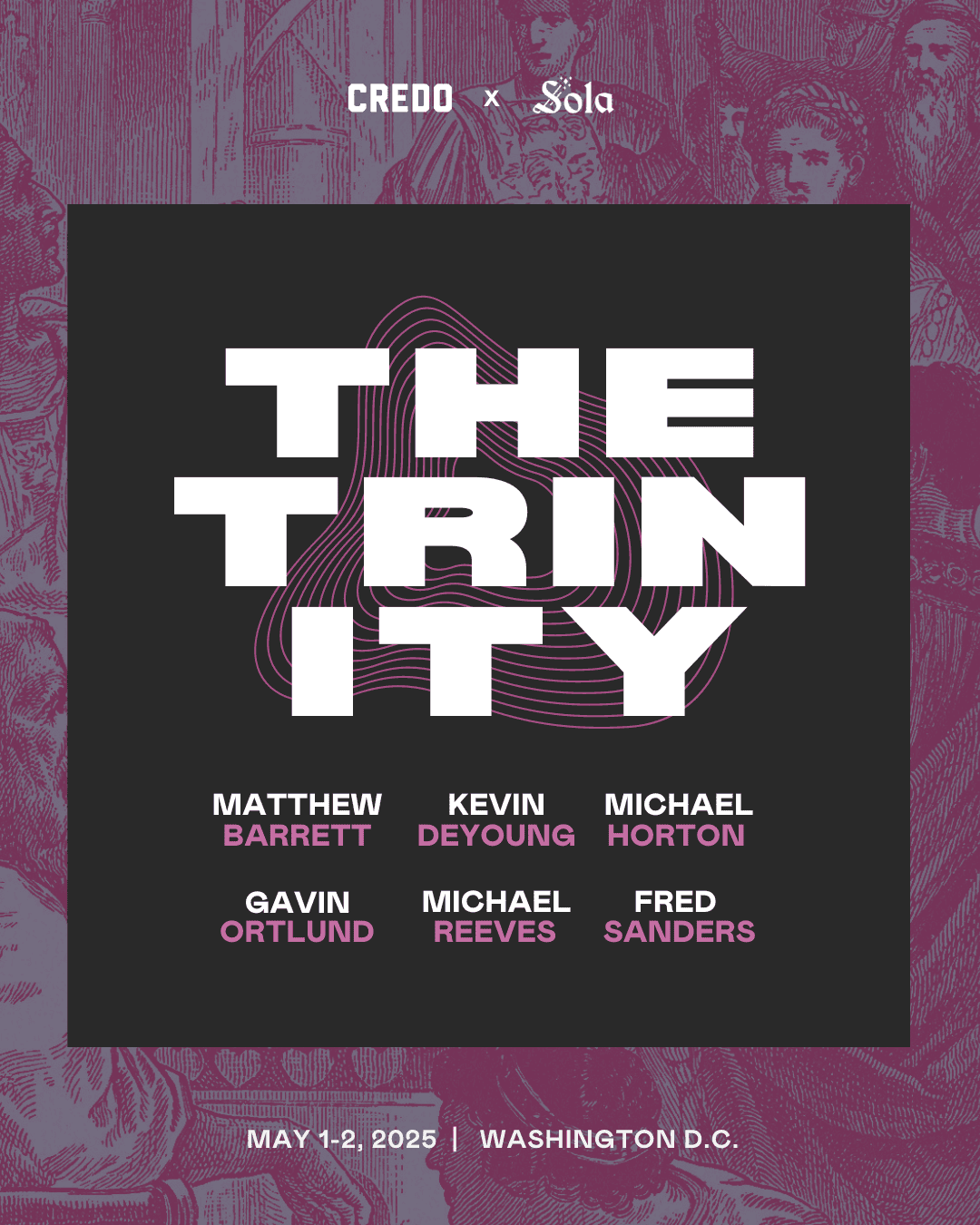
Paul: A Reformed Reading (Thomas Schreiner)
The Counterpoint series by Zondervan continues to be a helpful one-stop-shop for sorting out various theological positions. Our own Dr. Thomas Schreiner, Professor of New Testament at The Southern Baptist Theological Seminary, has recently contributed to the volume Four Views on the Apostle Paul. While Schreiner argues for a Reformed view, Luke Timothy Johnson argues for the Catholic view, Douglas Campbell for a post-New Perspective view, and Mark Nanos for the Jewish view. Michael Bird introduces the volume and the issues at stake. Schreiner gave us the privilege and opportunity to ask him a few questions about his perspective on Paul.
As a Reformed evangelical in your views of Scripture, is there not the danger when we talk about “Paul’s theology” that it comes across as something idiosyncratic rather than normative?
It depends upon your perspective. I would suggest that systematic theology (where we put everything together), and biblical theology (where we look at the contribution of a particular author) are friends instead of enemies. Systematic theology should be tethered to biblical theology to ensure that we are not foisting our own “system” on scripture. If we are getting Paul wrong, then there is something wrong with the system. Let me put it another way. On the one hand, how we understand the whole Bible plays a role in how we interpret Paul. But the converse is true as well. How we understand Paul plays a role in how we interpret all of scripture. We have a dialectic which must be maintained.
It seems many people react to traditional interpretations of Paul because they are so “individualistic” and correspondingly “modern” in that sense. Is there any grain of truth in that charge?
I think there is a danger of making Paul too individualistic and too corporate. It is a both-and instead of an either-or. Some would accuse me of being too individualistic in my reading of Paul. Here I would want to emphasize how important the church is in Paul’s theology and his vision of the renewal of all creation (Rom 8:18-25). At the same time, one is only saved from the wrath of God and justified by trusting in Christ. That is not a corporate act. Each one of us must believe individually to be saved.
Could you explain in a little bit more detail the difference between Paul’s understanding of “mystery” and his expectation that readers of the OT ought to see how it points to Christ?
I would simply say that we have a tension here. On the one hand, Paul’s gospel fulfills OT prophecy (Rom 1:2), and hence people should see that Christ is the hope to which the OT points. He is the Messiah, the Servant of the Lord, the Son of God, etc. Paul also argues, however, that in the gospel we also have a mystery that is revealed. Jews and Gentiles are now one body in Christ (Eph 3:6), and that truth was not clearly revealed in the OT scriptures. For a full exposition of this thought I would point readers to Don Carson’s excellent essay in volume 2 of Justification and Variegated Nomism.
In recent years, there has been a good bit of discussion on “union with Christ” in an attempt to 1) summarize all the benefits of salvation under one heading, 2) heal the breach between justification and sanctification; 3) open a door to ecumenical dialogue with the Eastern Orthodox doctrine of “theosis.” How would you describe Paul’s doctrine of “union with Christ”?
That is a huge question, and I don’t think I can do justice to it in a brief interview. In Rom 5:12-19 Paul argues (I don’t have space here to defend this reading) that we are either in Adam or in Christ. All believers are united to Christ as their covenant head. The frequency with which Paul uses the phrase “in Christ” demonstrates as well how important union with Christ is in his theology. We have died to sin and enjoy new life because we have died and risen in Christ (Rom 6; Col 2:11-12). We can think of Eph 1:3-14 where God’s redemptive benefits are given to us “in Christ.” I do believe all of God’s saving benefits are ours through union with Christ, and that there is no division between the Christ who justifies and sanctifies us.
Justification certainly seems like a central concern in Paul’s theology, yet you comment, “one of the common false paths in Pauline theology is the attempt to derive all of his theology from justification.” How so?
Here we meet a long-standing debate in Pauline theology. Is justification the center of Paul’s theology? Nowadays many would say that even talking about a center is unhelpful. I would want to add, even if there is a center, that I would not posit justification as the center. Justification is, of course, crucial in Paul’s thought, for it teaches us the crucial truth that we stand in the right before God because of Christ crucified and risen instead of our own work and obedience. Nonetheless, I think it is better to say that what God has done in Christ is foundational for Paul’s theology, so that if we speak of a center we should speak of being God and Christ centered.
Some of the authors responding to your article suggest that Romans and Galatians, for instance, should not be given greater interpretative weight when deciding what’s central to Paul’s theology. Have you over-emphasized the importance of Romans and Galatians?
That is a very interesting question. I don’t think so. Even though Romans is not a complete sketch of Paul’s theology, it is the fullest expression of his thought, and hence I think it should play a central role in constructing Pauline theology. I didn’t have space in the essay to do everything, but I think the gospel articulated in Romans and Galatians is not restricted to those letters and continues to play a foundational role (e.g., 1 Cor 1:18-31; 6:11; 15:1-4; 2 Cor 3:4-18; 5:14-21; Eph 2:1-22; Phil 3:2-11; Col 1:12-14; 1 Thess 1:9; 5:9; 2 Thess 2:13-14; 1 Tim 1:12-17; 2 Tim 1:9-11; Tit 2:11; 3:5-7). I wasn’t trying to write a comprehensive Pauline theology in a short essay, and the letters address many issues that I didn’t examine. Still, I think it is legitimate to see a coherent gospel (stated most clearly in Romans but not lacking elsewhere) in the Pauline writings as a whole.
Behind several criticisms sent your way is the assumption that God’s wrath and God’s love are mutually irreconcilable in the context of salvation. God’s love necessarily neutralizes the concept of wrath. How do you hold God’s wrath and love together?
I think the Pauline portrait and the biblical portrait is that God loves sinners and is also angry at sinners. Both are true. It is not an either-or. The God whose wrath is revealed from heaven (Rom 1:18) because of his great love sent Christ to die for sinners, the weak, the ungodly, and his enemies (Rom 5:6-11). It seems to me that where this comes to the forefront in the book is in the matter of eschatological judgment. I believe Paul teaches in many places that those who do not put their trust in God and Christ will perish forever. Eschatological wrath is coming (2 Thess 1:5-9), and hence one must believe in Christ to be rescued from the wrath of God (Rom 3:21-26).
As a member of the academic guild and a follower of Christ, how do you process criticism especially when you feel it is the result of a lack of understanding your position?
Receiving criticism is part of the process of discipleship. It is one of the ways God makes us more like Jesus, so that we live for his glory instead of the praise of people. I don’t enjoy being criticized, but I recognize how the Lord has used it to help me become more like Jesus (though I have a long way to go!). Criticism is also helpful in that I see how others understand and respond to what I wrote. In reading criticisms I often see how I could state something better. I want to be open in reading a critique to correction. I could be wrong! So, I read a critique and think about how to respond well to what is said and consider whether what I wrote needs to be adjusted.

